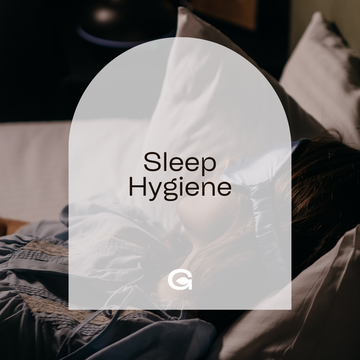Good sleep is as crucial to health as a balanced diet and regular exercise, yet many struggle to get enough quality sleep each night. Poor sleep can affect everything from your mood to your immune function. In this post, we’ll explore the importance of sleep hygiene and share effective techniques to enhance your sleep quality.
Why Good Sleep Hygiene Matters:
• Physical Health: Explain how sleep plays a critical role in healing and repair of your heart and blood vessels, and chronic sleep deprivation is linked to heart disease, kidney disease, high blood pressure, diabetes, and stroke.
• Mental Health: Discuss how sleep affects various brain functions, including cognition, concentration, productivity, and performance. Highlight that poor sleep patterns have been linked to depression, anxiety, and mental distress.
• Weight Management: Briefly touch on how sleep affects the hormones that regulate hunger—ghrelin and leptin—and how poor sleep is related to increased appetite and calorie intake.
Core Elements of Sleep Hygiene:
• Regular Sleep Schedule: Stress the importance of going to bed and waking up at the same time every day, even on weekends, to regulate your body’s internal clock.
• Optimizing Your Sleep Environment: Suggest ways to make the bedroom conducive to sleep, such as controlling temperature (ideally between 60-67 degrees Fahrenheit), reducing noise, and optimizing lighting.
• Pre-Sleep Routine: Encourage establishing a calming pre-sleep routine that may include reading, taking a warm bath, or meditation to help signal to your body that it’s time to wind down.
• Mind Your Diet: Advise against heavy or large meals within a couple of hours of bedtime. Discuss how nicotine, caffeine, and alcohol intake can wreak havoc on sleep quality.
Improving Sleep Quality with Behavioral Changes:
• Limit Screen Time: Explain how the blue light emitted by phone, tablet, and computer screens inhibits the production of the sleep-inducing hormone melatonin. Recommend turning off these devices at least an hour before bedtime.
• Physical Activity: Discuss how regular physical activity can help you fall asleep faster and enjoy deeper sleep, but not too close to bedtime.
• Mindfulness and Relaxation Techniques: Introduce techniques such as deep breathing, progressive muscle relaxation, or visualizing a peaceful place to reduce anxiety or pain that might interfere with sleep.
When to Seek Professional Help:
• Persistent Issues: Mention that while occasional sleep disruptions are normal, persistent difficulties falling and staying asleep (insomnia), excessively feeling sleepy during the day (hypersomnia), or other disruptive sleep behaviors warrant a consultation with a healthcare provider.
Mastering sleep hygiene can significantly improve your sleep quality, enhancing both mental and physical health. By incorporating these techniques into your nightly routine, you can set the stage for a better night’s rest.
Start tonight by picking one or two techniques to implement and note how your sleep improves. Share your experiences or any questions in the comments below or on our social media pages. Sweet dreams await!


